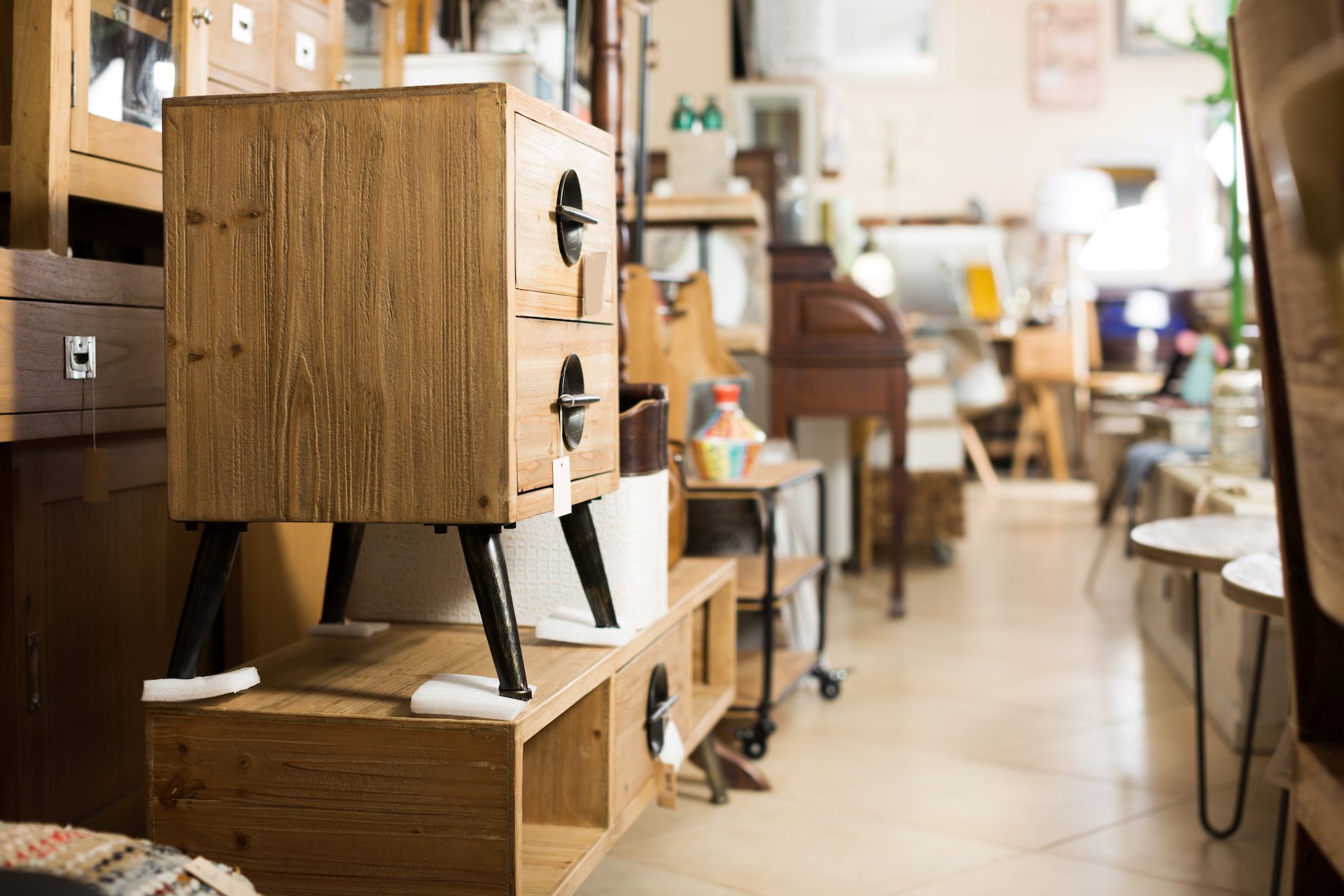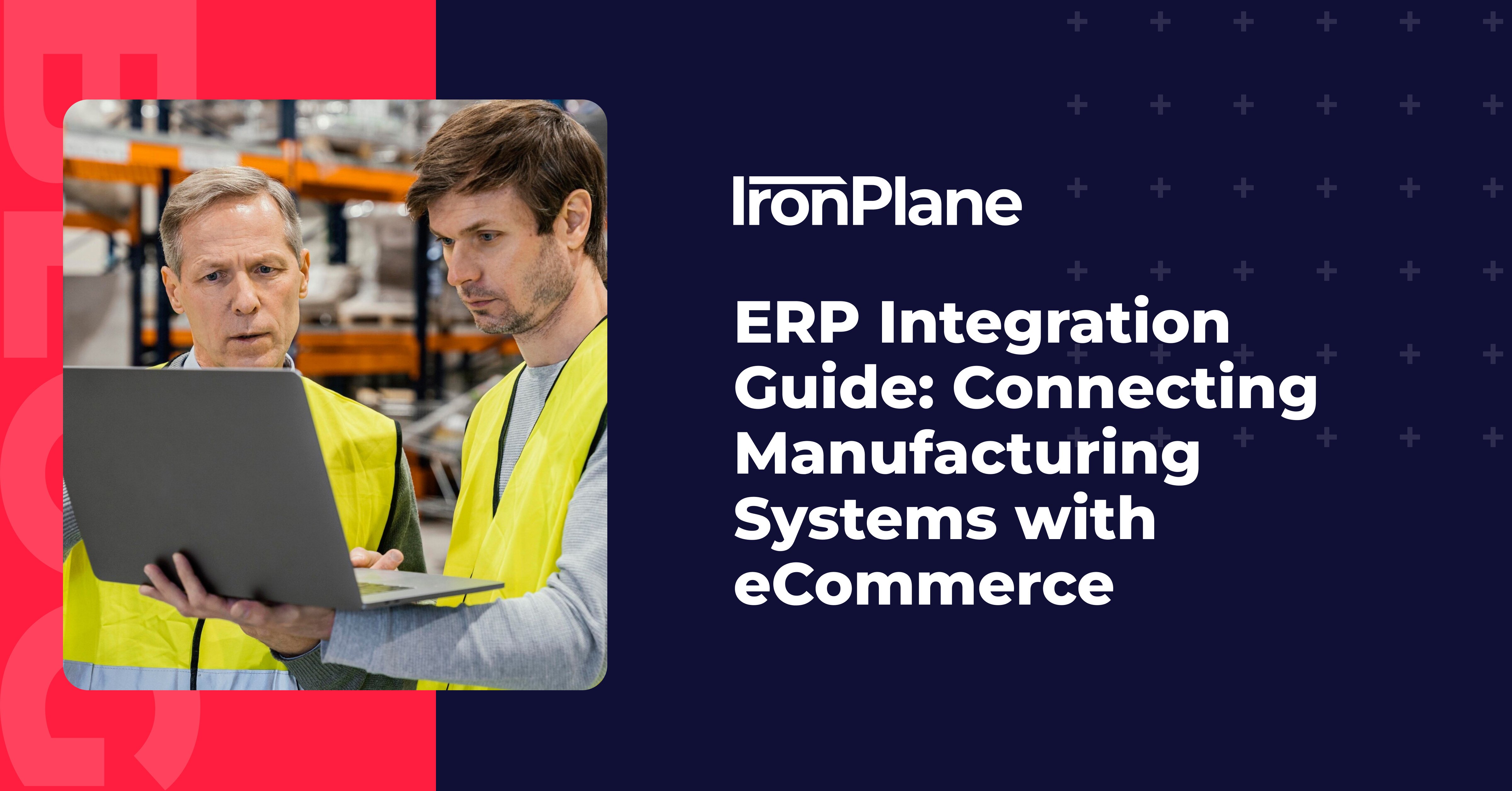Why Furniture Retailers Need to Step Up Their Online Game
Explore why furniture retailers must elevate their online strategies and how they can thrive in the digital marketplace.

With the rise of online shopping, consumers expect seamless experiences, quick deliveries, and personalized service — especially in the furniture industry. To meet these demands, furniture eCommerce retailers need robust systems in place, and one of the most critical components is an enterprise resource planning (ERP) system.
In this guide, we will walk through what an ERP system is, why they matter for furniture retailers, how to choose the right ERP for your business, and list a few of the top choices that retailers love.
An ERP system is a comprehensive software solution that provides for enterprise resource planning by integrating various business processes — including inventory management, order processing, accounting, human resources, and more — into a single platform. For furniture manufacturers and retailers, an ERP system serves as the backbone of operations, providing real-time visibility, efficiency, and scalability.
Here's why an ERP system is crucial for furniture manufacturers and retailers:
Each industry has specific needs and in many cases, there are ERPs designed specifically to address those needs. However, there are also several ERPs with sufficient flexibility to allow customization which will meet the unique needs of not only the industry, but also the company using the platform.
Here are some examples of ERP functionalities furniture manufacturers may want to consider:
Once you've chosen the right ERP system for your furniture eCommerce business, strategic integration with your eCommerce platform is crucial for maximizing efficiency and streamlining operations. Here's an overview on key aspects to align:
Now that we've explored the importance of ERP systems for furniture eCommerce retailers and how to choose the right one let's dive into the five of the best ERP systems specifically for the furniture industry.
NetSuite ERP is a cloud-based solution known for its robust inventory management capabilities, allowing retailers to track stock levels across multiple warehouses, manage complex product variants, and automate replenishment processes. NetSuite integrates seamlessly with leading eCommerce platforms like Shopify, Magento, and WooCommerce, enabling retailers to synchronize product catalogs, inventory data, and order information in real-time.
Microsoft Dynamics 365 Business Central is a flexible ERP solution designed to meet the needs of small to medium-sized furniture retailers. It offers a user-friendly interface and customizable dashboards, making it easy for users to navigate and access critical information. Business Central provides robust financial management features, including accounts payable/receivable, general ledger, and budgeting tools. It also integrates with popular eCommerce platforms such as Shopify, BigCommerce, and Magento, enabling retailers to streamline order processing, inventory management, and customer interactions.
Sage X3 is an enterprise-level ERP solution suitable for mid-sized to large furniture retailers. It offers advanced inventory management capabilities, including multi-location tracking, batch/lot tracking, and demand forecasting, allowing retailers to optimize inventory levels and minimize stockouts. Sage X3 also provides comprehensive financial management features, including multi-currency support, budgeting, and financial reporting. It integrates with eCommerce platforms like Shopify and WooCommerce.
Epicor ERP is designed for manufacturing and distribution businesses, making it ideal for furniture retailers with complex supply chains. It offers advanced production planning and scheduling tools, enabling retailers to optimize manufacturing processes and minimize lead times. Epicor ERP also provides comprehensive financial management features, including cost accounting, asset management, and compliance reporting. It integrates with eCommerce platforms such as Magento, Shopify, and WooCommerce.
SAP Business One is a scalable ERP solution suitable for small to medium-sized furniture retailers. It offers integrated inventory management features, including serial/lot tracking, bin location management, and automated reorder points, allowing retailers to optimize inventory levels and reduce carrying costs. SAP Business One also features full financial management capabilities, including general ledger, accounts payable/receivable, and banking integration. It integrates with eCommerce platforms like Shopify, Magento, and WooCommerce, enabling retailers to synchronize product data, process orders, and track customer interactions.
Each of these ERP systems offers a robust set of features, industry-specific functionality, and integration capabilities to help furniture eCommerce retailers streamline operations, drive growth, and deliver exceptional customer experiences.
Integrating an ERP system with your eCommerce platform is essential for furniture retailers looking to thrive in today's competitive landscape. By choosing the right ERP system, strategically integrating it with your eCommerce platform, and leveraging its capabilities to their fullest extent, you can optimize efficiency, enhance customer satisfaction, and position your business for long-term success in the digital home furnishing marketplace.
ERP solutions offer comprehensive benefits for furniture eCommerce businesses by streamlining operations and centralizing data. Key benefits include improved inventory management, enhanced order processing efficiency, real-time financial reporting, and better customer relationship management. By integrating key business functions into a single platform, an ERP system enables businesses to reduce manual tasks, minimize errors, and scale more effectively.
An ERP system optimizes inventory management by providing real-time tracking of stock levels across multiple warehouses and sales channels. For furniture eCommerce, where product variants, materials, and sizes can be complex, ERP software ensures that inventory is accurately monitored and automatically updated when sales are made. This prevents stockouts, overstocking, and costly errors, allowing businesses to maintain optimal stock levels and streamline supply chain operations.
ERP systems such as SAP, Microsoft Dynamics 365, and NetSuite are well-suited for furniture eCommerce businesses. These solutions offer specialized modules for inventory management, order processing, customer relationship management (CRM), and financial accounting, all tailored to the needs of retailers handling complex product catalogs and large-scale logistics. The right ERP choice depends on the size of your business, specific operational requirements, and the level of customization needed.
Yes, ERP integration can significantly enhance the customer experience by providing accurate, real-time information on product availability, order tracking, and delivery times. With better management of orders and inventory, businesses can fulfill orders more quickly and accurately, leading to improved customer satisfaction. Additionally, ERP systems support personalized customer service through centralized data, allowing customer service teams to access a complete view of customer interactions and preferences.

Explore why furniture retailers must elevate their online strategies and how they can thrive in the digital marketplace.

Explore why shipping and returns are crucial to the furniture buying process and discover essential tools and integrations to enhance the user experience.

Manufacturers need to connect their Enterprise Resource Planning (ERP) systems with eCommerce platforms to stay competitive and efficient. This integration can make operations smoother, improve efficiency, increase sales, and create a better experience for both the manufacturer and their customers.